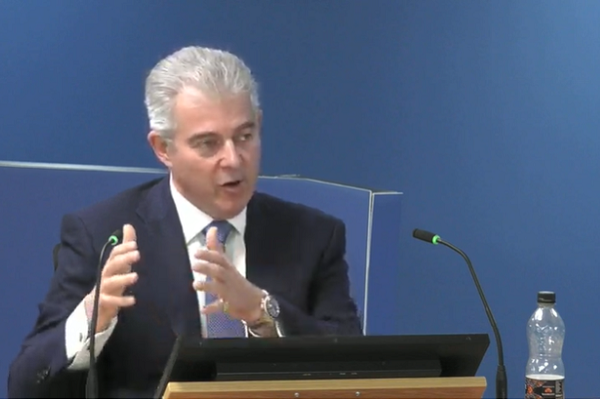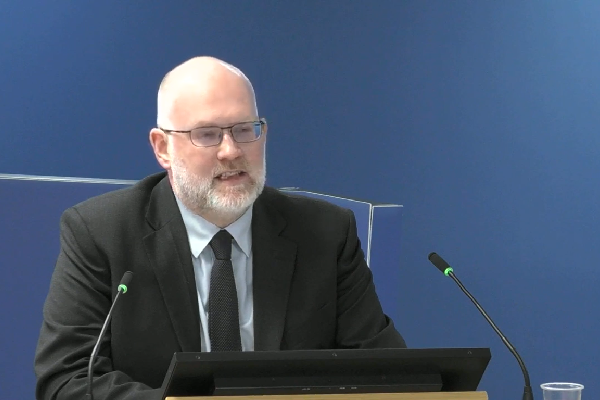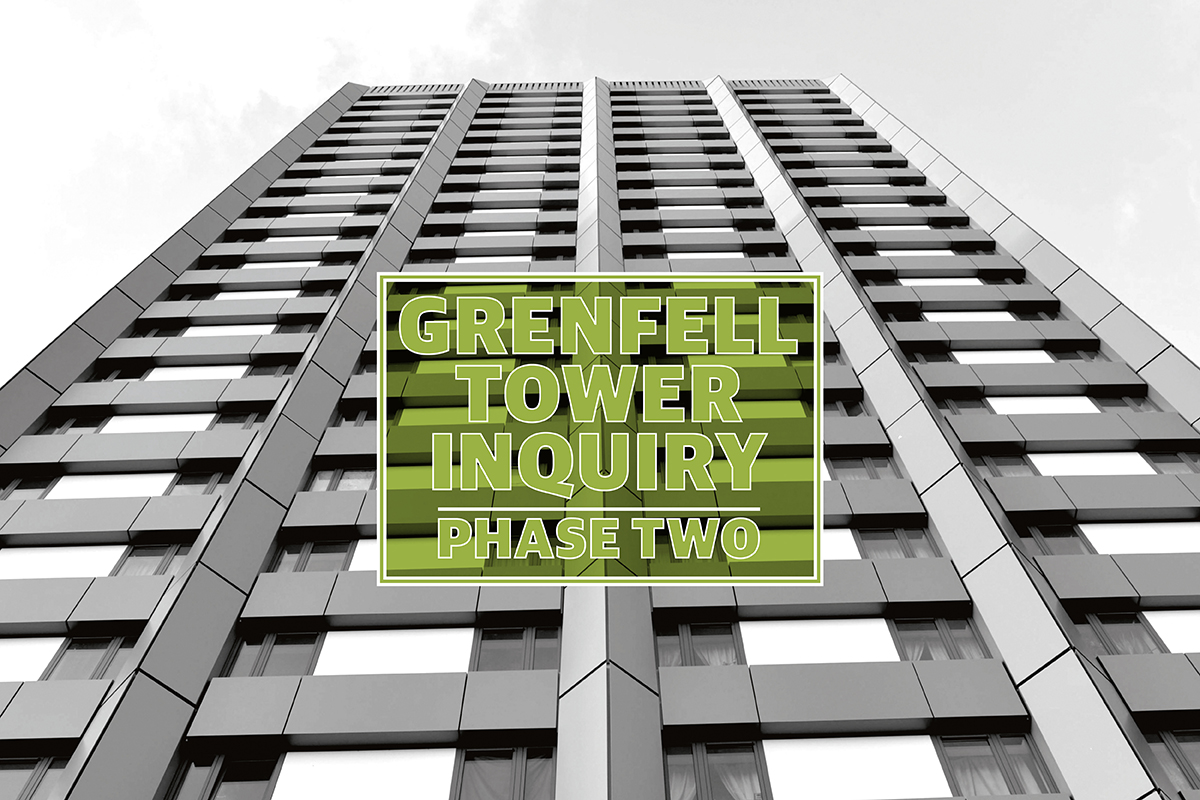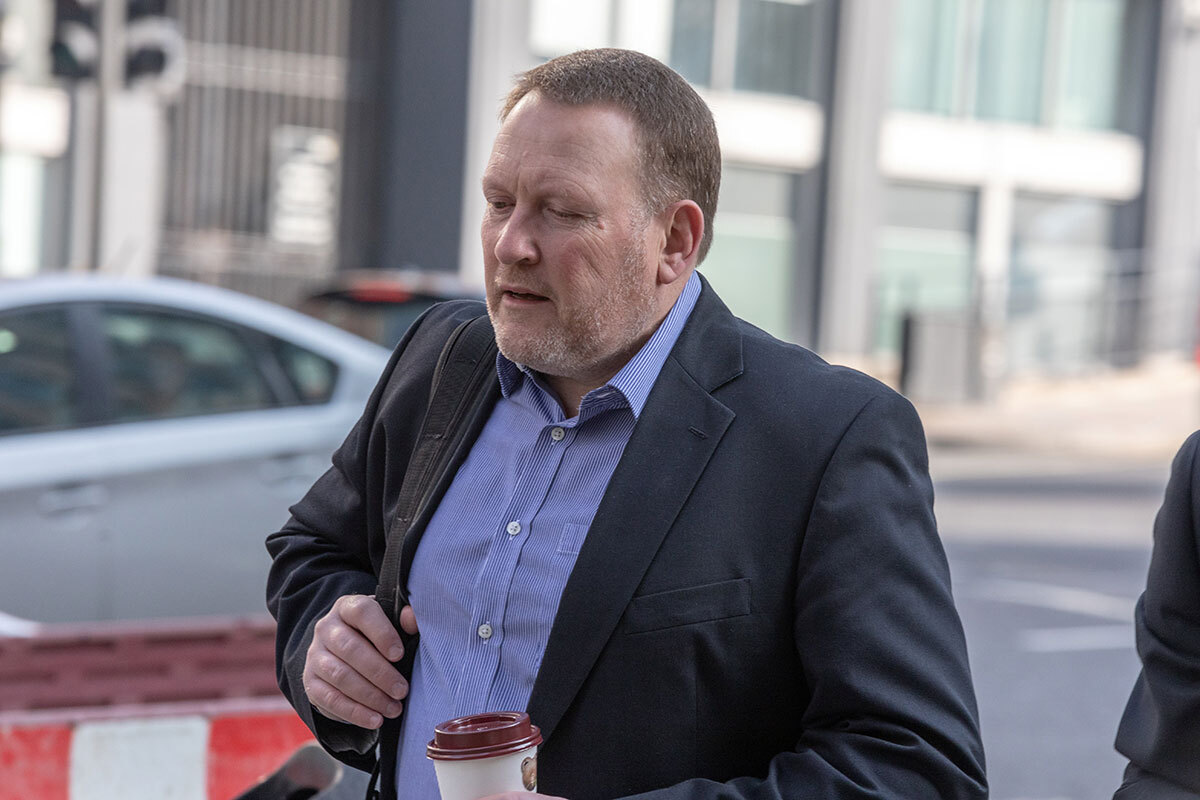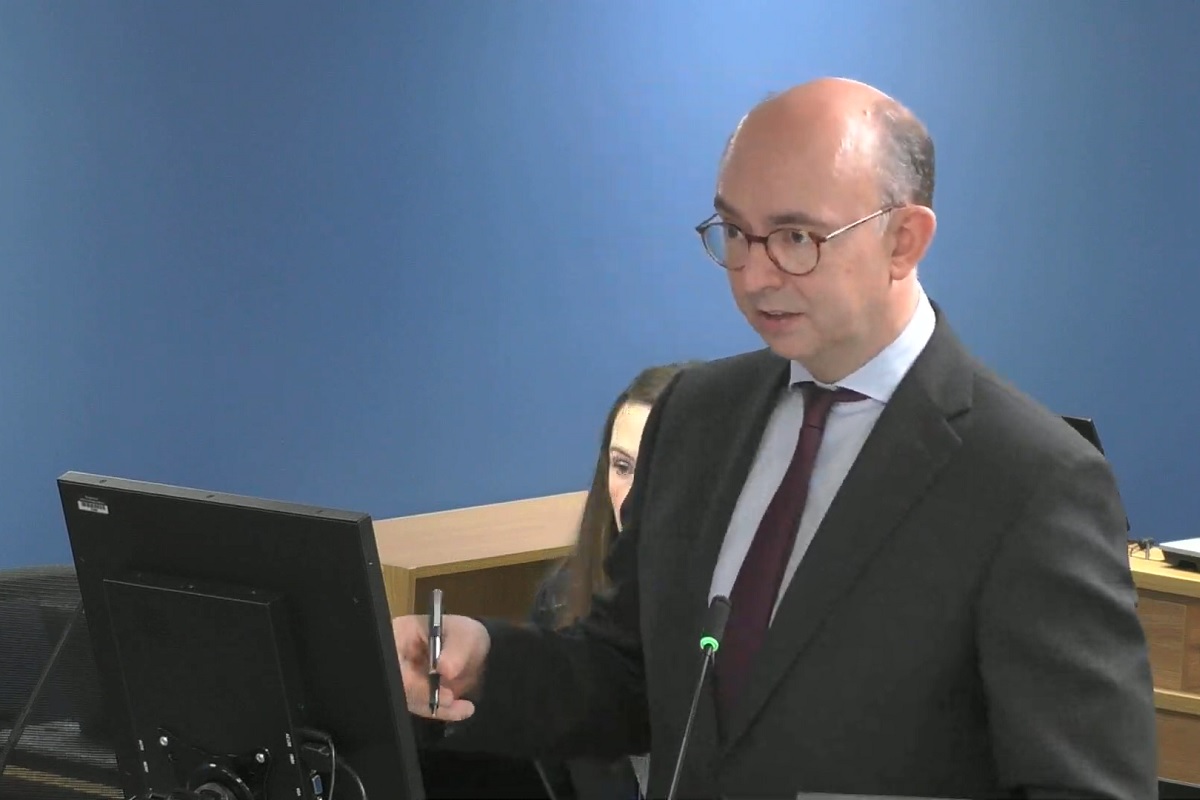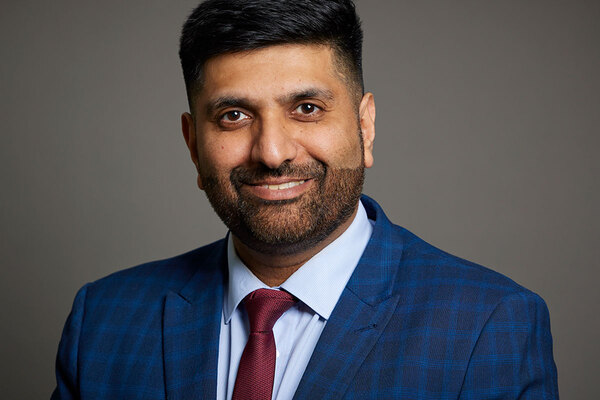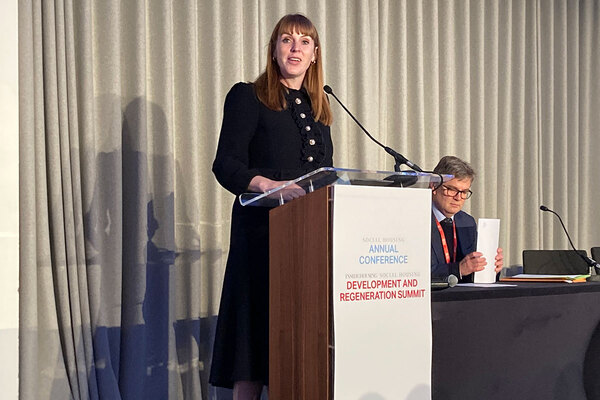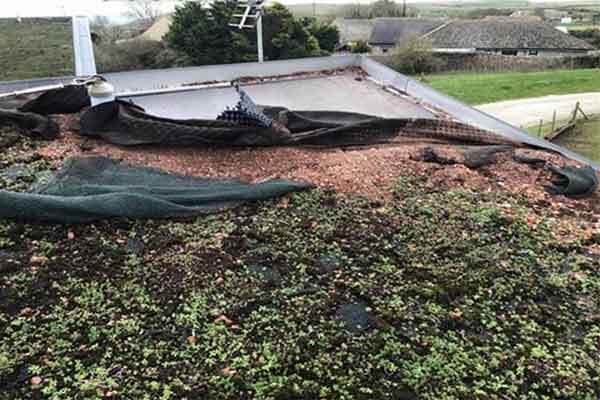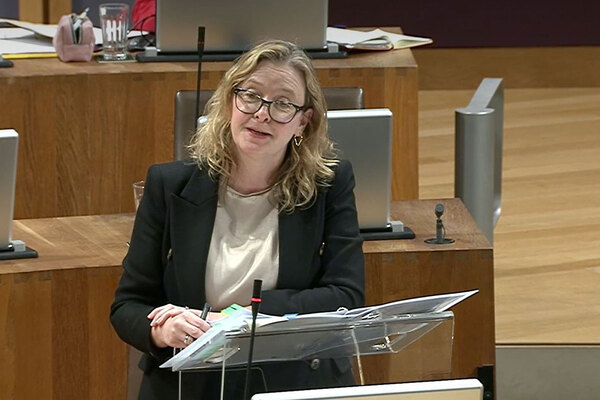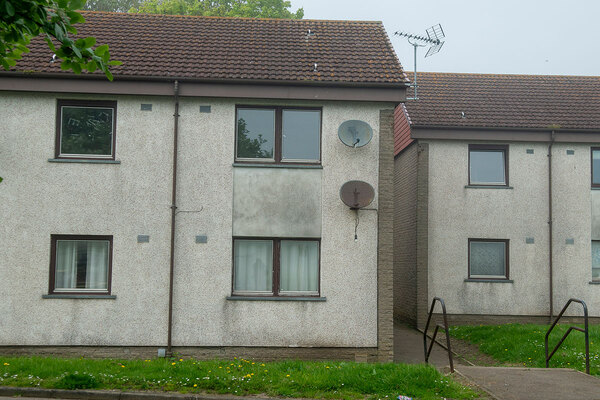Minister denies ‘ideological presumption against regulation’ meant fire warnings were not heeded before Grenfell
Former fire minister Brandon Lewis today denied placing “an ideological presumption against regulation” over repeated calls for greater regulation of fire risk assessments, including from two coroners recommending ways to prevent further deaths.
The first politician to appear before the Grenfell Tower Inquiry, current Northern Ireland secretary Mr Lewis was primarily grilled about the government’s decision not to impose higher standards on fire risk assessors in the 2010s.
He was asked why the government persisted with its approach of imposing no minimum standards on statutory risk assessments despite mounting evidence that the system was “not working”.
Mr Lewis said the government wanted to “devolve power away from central government” and “look to the bodies we already had in the sector” to lead the process.
Fire safety legislation from 2005 required building owners to carry out risk assessments of their properties, but imposed no requirements for who they could employ to do them, meaning anyone could legitimately claim to be a fire risk assessor.
This position was criticised by a several sector bodies, the London Fire Brigade, then-chief fire and rescue advisor Sir Ken Knight, and the coroners investigating the deaths in the Lakanal House fire in 2009 and the blaze that killed firefighter Stephen Hunt in 2013.
But, as the inquiry has previously heard, the government resisted repeated calls to impose requirements for higher standards.
Grenfell Tower was ultimately fire risk assessed by sole trader Carl Stokes, a former firefighter who had attended a short training course and had no prior experience of risk-assessing high rises.
The civil servant who advised on this issue has previously said she “just knew” that proposals for a mandatory competency scheme “would be unwelcome by business and ministers”, while long-time government advisor Colin Todd has said that the government “very, very positively resisted” such a change “in the name of reducing burdens on business”.
Mr Lewis, who was fire minister between 2016 and 2017 and also held some responsibilities for fire as a junior minister between 2012 and 2014, was shown a review of fire safety legislation carried out by the Department for Business, Innovation & Skills in 2012.
It noted that certification and accreditation were not “currently required in the market, meaning that in effect anyone can offer their services” and that a “number of fire industry professionals” felt there was a “good case” for higher standards.
As the inquiry has previously heard, this led civil servant Louise Upton to draft a proposal for a national fire safety regulator.
An email from July 2013 said that Mr Lewis was “not keen on the idea of a national regulator”.
Asked why he objected to the proposal, he said he would have wanted to “ensure it doesn’t just become another layer of regulation that doesn’t deliver anything meaningful over and above what we’ve got”.
“So it was a generic objection, rather than a considered evaluation of the advantages and disadvantages of the proposal?” asked counsel to the inquiry Andrew Kinnier QC.
“Conceptually, it’s unlikely I would be attracted to creating another body on top of bodies,” Mr Lewis replied.
Ms Upton presented a report on the proposal in December 2013 which warned that “the government’s policy of standing back to allow the sector to fill the space vacated by government is risky”. Her proposal was not taken forward.
“Were you content for that proposal to wither on the vine, given a predisposition against further regulation in this area?” asked Mr Kinnier.
Mr Lewis explained that the government was “focused on looking to the bodies we already had in the sector” and preferred to “devolve power away from central government rather than bringing it in”.
“In reality we’re dancing around a truth here, which is that there was an aversion to increase regulation, even in the face of failure by the industry to remedy the problems about competence of fire risk assessors,” said Mr Kinnier.
Mr Lewis said he “did not think that’s fair”, as the department brought in regulations in areas such as carbon monoxide testing and smoke alarms.
“We were not shy of doing what we felt was right. I think just in this in this area, the view was as we were looking to continually devolve away from central government, working with the experts in the field was the right way to do it,” he said.
The inquiry then saw that, following an inquest into the death of Stephen Hunt, a firefighter killed in July 2013 while tackling a blaze at a shop in Manchester, the coroner wrote to the Home Office in May 2016 calling on it to “consider measures to ensure that fire risk assessors are adequately trained and qualified so as to be competent in the role”.
Again, the government did not act, with Mr Lewis responding by simply setting out the existing measures taken – such as a non-mandatory criteria against which assessors’ competence could be assessed.
“There’s persistent concerns here about the competency of fire risk assessors, supported by conclusions made by two coroners, one the senior coroner in Manchester,” said Mr Kinnier.
“Nothing was done in order to regulate when you had a cumulative weight of evidence that something needed to be done. Why in those circumstances was greater weight attached to an ideological presumption against regulation, rather than taking action when it was plain the sector led approach was not working?” he asked.
Mr Lewis replied: “My point would be it wasn’t just an ideological thing… it was also around what practically can make a difference and [that] is making sure that the right experts who have that understanding and expertise are available to the organisations that need that advice.”
“But it wasn’t working, was it? This is the point we’re dancing around, Mr Lewis, which your answers are grappling with,” said Mr Kinnier.
“The question you asked me is why we made the decisions at that point of time. And my answer is, that’s why we made the decision we did at that point in time,” said Mr Lewis.
“Is the reality that it took a multi-fatality event such as Grenfell to focus proper attention on the issues that had been discussed in the decade before?” Mr Kinnier asked.
“In a practical sense, that’s clearly happened, tragically obviously,” said Mr Lewis.
He said that some of the warnings he received were “several years apart” and that he had not necessarily looked at the issues in a “cumulative way”.
Earlier, the inquiry had seen a letter – previously released by the inquiry – from Ron Dobson, former commissioner of the London Fire Brigade, sent in December 2012 referring to the brigade’s investigation into the Lakanal House blaze.
This included a warning that building regulations guidance was “not particularly clear” on the crucial issue of external fire spread and “may not be fully understood”.
Asked if “the head of the largest fire and rescue service in the country” saying the guidance was unclear gave him “cause for concern”, Mr Lewis said: “No, I don’t recall it doing so… the building regulations team are confident, they’re the experts, they have said that this is OK… And I would have trusted that.”
Mr Lewis did not hold responsibility for building regulations. Other ministers who did are due to begin giving evidence tomorrow, following the conclusion of civil servant Brian Martin’s testimony this afternoon.
Sign up for our weekly Grenfell Inquiry newsletter
Each week we send out a newsletter rounding up the key news from the Grenfell Inquiry, along with the headlines from the week
Already have an account? Click here to manage your newsletters
